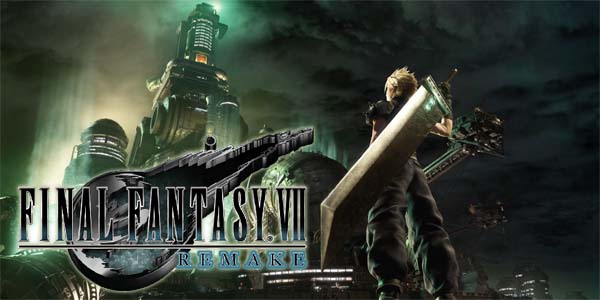
Well I think I waited long enough before playing and reviewing this game that I'm probably not spoiling anything by saying that Final Fantasy VII Remake takes some interesting creative liberties with the original's story. Those hoping for a one-for-one re-telling of the 1997 PlayStation classic might be disappointed that Remake only covers the early half of the original's first disc. It doesn't even make it as far as the emotional sucker-punch (and ludic shake-up) that was the conclusion of the original's first disc. But then again, that opening act is very faithfully recreated and expanded here, and the narrative curveball that this remake throws is bold, creative, and an interesting artistic statement about the reverence for the original masterpiece.
The decision by Square-Enix to put the word "remake" in the title is a deliberate, and important choice. This game isn't simply Final Fantasy VII (2020) in the way that the remakes of Shadow of the Colossus, Demon's Souls, Resident Evil, or even Resident Evil 2 are. Resident Evil 2 takes dramatic creative liberties with gameplay feel by ditching the static camera in favor of an over-the-shoulder shooter, but despite the wild deviations from the original's fundamental game design, the remake is still an effort to recreate the original game's story, environments, and game strategy in all the ways that matter.
No, Final Fantasy VII Remake puts the word "remake" in its title because at the same time that Square-Enix is remaking the original Final Fantasy VII, the game itself is remaking the story and continuity. Final Fantasy VII Remake does not seek to be an upgrade that replaces the original game. The story of the original game exists within this new game's canon, and is being remade within Remake's own fiction. In so doing, it plays with the ideas of fate and destiny. The sky is the limit for where the sequel(s) go from here.
Square imitated Paramount's attempt to keep the original Star Trek's existence as part of the reboot's continuity.
Square-Enix is trying to do with Final Fantasy VII Remake what J.J. Abrams and Paramount tried to do with the 2009 Star Trek reboot: write the original's existence into the continuity of the reboot. Yet Final Fantasy accomplishes this so much more successfully because, unlike Star Trek (2009), Final Fantasy VII Remake tells its revised story while still remaining faithful to the ideals, themes, and spirit of the original. Star Trek (2009) and its sequels (with the possible exception of Beyond) only took the campy space-adventure aspect of the original Star Trek, but did not replicate the thoughtful science fiction and character drama that the original was known and beloved for.
Final Fantasy VII Remake on the other hand, replicates the ludic complexity, strategy, and versatility of the original's character-development and materia systems, and retains all of the original narrative's themes of classism, environmentalism, and the fuzzy line between "protest" and "terrorism" (a question that has become increasingly relevant in recent history). Its expanded length even allows it to explore some of these topics in much greater detail. It also allows the game to further explore some of the relatively minor side characters from the original, giving them more depth and significance in the story (some more successfully than others). It does all this while re-creating the original characters almost exactly as they were. Eat your heart out, J.J. Abrams...
Remake probes the limits of the fuzzy line between "protest" and "terrorism".
It's an idea so crazy that it just might work; an idea both ridiculously dumb, but also ingeniously subversive. I just hope that it doesn't fall into the same trap of ridiculous self-indulgence and pretentiousness that killed my interest in Kingdom Hearts by the time the end credits of Kingdom Hearts 2 were rolling. I had lost all interest in Kingdom Hearts 3 about a decade before it released, and never bothered to play it. I hope the same does not happen with the final installment(s) of Final Fantasy VII Remake.
I hesitated to buy this remake when it released because Square had announced that it would be broken up into episodes. I wasn't sure if I would have time to play through three or five acts of a remake of Final Fantasy VII if each act was going to be 40+ hours long (and $60 each). With a new console generation coming out, I also wasn't sure if I would be needing to transfer my save file for the sequels, and if a PS4 save file from episode 1 would be compatible with the PS5 to which episode 2 is certainly going to be exclusive.
If the content offered in this first episode is indicative of the plan for the whole series, then the complete remake looks like it would need to span eight or nine episodes, and take another 20 years to be released. But that might not necessarily be the case, since the end of the first episode implies that the sequels are going to diverge considerably from the original game, such that every scene and plot beat from the original may not need to be recreated. So maybe my concerns will be vindicated, or maybe they won't. [More]
51dad9a6-b345-4bf9-9484-b0c36bae9ce6|1|5.0
Tags:Final Fantasy VII, Final Fantasy VII Remake, Final Fantasy, Squaresoft, Square-Enix, Cloud Strife, Tifa Lockhart, Barret Wallace, Aerith Gainsborough, Sephiroth, wraith, retcon, materia, Shinra, Buster Sword, Midgar, mako, Lifestream, limit break
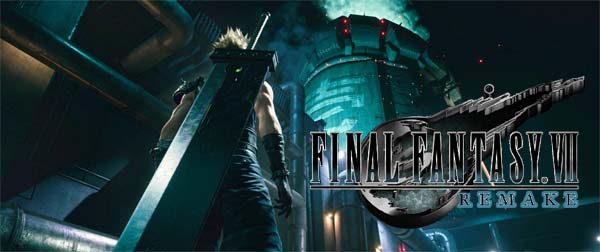
I played the demo for the Final Fantasy VII remake this weekend. My hopes for it weren't high. Final Fantasy VII is a classic, and any attempt to remake runs the risk of failing to recapture the magic lightning in the bottle that was the original. Final Fantasy VII is a very dated game, and its mechanics and visuals haven't really held up super well (I'm looking at you: motorcycle, snowboarding, and submarine mini games!). Reproducing the original exactly as it was, but with updated visuals and voice acting would certainly be faithful, but replicating those dated mechanics at higher fidelity might not make for the best of modern gaming experiences.
On the other hand, if you change too much of the beloved original, you run the risk of fans complaining that the remake is "too different" from the original and not faithful. It's a tough tightrope to walk.
Don't get me wrong; it isn't impossible for either method to result in a good game that stands up to the original. In fact, we have fairly recent examples of both approaches being successful. The Shadow of the Colossus remake turned out to be very faithful to the original, even though I felt that it lacked some of the original's bleakness. On the other end of the spectrum, Capcom completely re-invented Resident Evil 2, and (despite my misgivings regarding some mechanical changes) that remake turned out well. Of course, neither of those reached the near pitch perfection that was the faithful remake of the original Resident Evil, but that remake is a rare gem.
Though Resident Evil 2 was a good remake,
I did have considerably misgivings about some of the design departures from the original.
And let's face it, Square-Enix's track record with Final Fantasy over the last 10 to 15 years has been rather shaky. The last Final Fantasy game that I actually liked was Final Fantasy XII. The company has been moving away from the strategy-heavy, party-based battles and deep, robust character customization of generations past, in favor of fast-paced spectacle action using a single character. My beef with the newer games isn't that they are real-time. Both Final Fantasy XII and Final Fantasy X-2 had real-time battle systems, and I enjoyed both of those.
Final Fantsy XIII and XV limited our control to one character.
Rather, I disliked that XIII and XV gave us so little control over the party as a whole. It didn't help that the action was also simple to execute. XIII was criticized as simply requiring the player to "press X to win". XV mostly boiled down to alternating between holding an attack button or holding a defend button. Yeah, there were other commands and nuances to the combat mechanics of both games, but when compared to other action games like Devil May Cry or an actual action-RPG like Dark Souls, I just didn't find the combat in either Final Fantasy game to be very compelling or engaging.
So when I got to the point in the Final Fantasy VII demo in which Barrett joined the party, and I was able to take full control over him, while still being able to pause the game to issue commands to Cloud, I was ecstatic!
... [More]
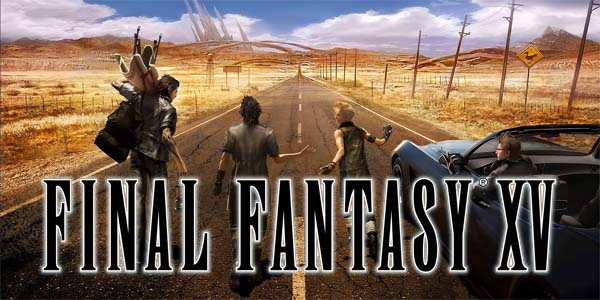
I really don't know what to make of Final Fantasy XV. On the one hand, the game is trying to do something new and kind of interesting with the long-stale open world formula. I desperately want to be able to celebrate the game for these new ideas. That being said, the game just completely blunders so much of its fundamental design, and it tramples on many of these promising new ideas by falling back on too many of the very same tropes that have killed so many other open world games.
The obvious common criticism of the game is that it's got too much of the player just sitting in the car waiting. You don't even have to drive the damned thing, as you can set one of the NPCs in your entourage to do all the driving for you. And even if you do decide to take the wheel, the car drives itself. You just press the gas, and the car automatically steers itself to stay on the road. You can't even turn off of the road even if you want to.
You know what? I'm actually OK with that.
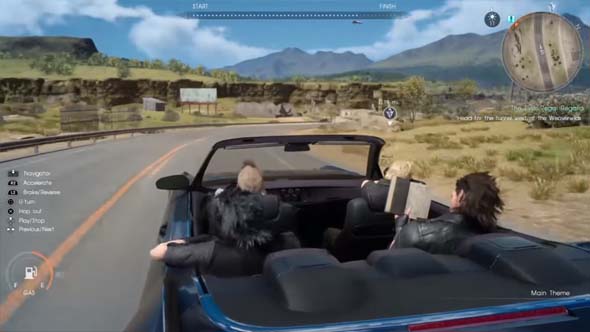
I actually don't mind the long drives, as I can catch up on some reading along with Gladiolus
A nostalgic road trip adventure
You see, having such restrictive travel mechanics actually forces the player to think more about how you're going to navigate the world. While in the car, you are confined to the game's roads and highways. You can't just point the car directly at your objective marker and drive off-road in a straight line to get there. You're also limited to traveling during the daylight hours, and you have to make sure that you budget the time and money to stop for gas and lodgings. There's a genuine amount of logistical planning required for accomplishing virtually any task in this game. You have to think about traversing this world in the same manner that the characters would have to think about it! This is a role-playing game, after all, isn't it? So these travel mechanics are actually pretty clever ways of putting the player in a role-playing mindset and giving you a game to play when you're outside of combat.
I get the feeling that Square-Enix wanted Final Fantasy XV to emulate being on a road trip. You spend large chunks of time sitting in the car driving across the countryside, passing rest stops, scenic overlooks, and roadside diners. You stop every so often to admire the view, take a walk through nature, or chat with the locals. When the sun sets, you are pressured to find a motel to bunk in, or to set up a camp site if you happen to be on foot.
For brief periods of time, this game hits a very serene high in which you start to feel like you're really in this world and with these people, as they sit bored in the car, or eat dinner over a campfire while going over the photos that they took of the day's adventure. It's the same sort of feeling that No Man's Sky hits in its early hours, when you're still awestruck by the sheer size and scope of the new planets you set foot on. Having been someone who used to take annual road trips with my family to visit national parks around the country, seeing a video game try to simulate and systemize that activity (and the human bonding that it engenders) is genuinely endearing and makes me more than a little bit nostalgic.
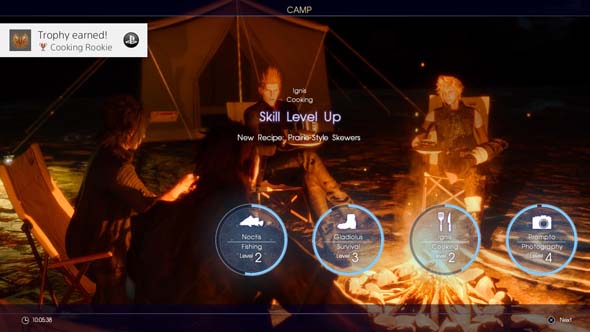
This game makes me nostalgic for the summer camping trips of my youth.
Mundane video game adventure
But then, much like No Man's Sky, Final Fantasy XV shatters that experience by forcing you back into "video game land". It isn't the long stretches of non-interactive driving through a video game vacation that bothers me. Instead, I'm bothered by the sheer tediousness of the mundane fetch quests and busy-work that the game throws at you. You see, a road trip -- and an adventure in general -- only really works if you're always traveling towards a destination. This is a feeling that Final Fantasy X completely nailed!... [More]
8a140761-e4af-4f96-967f-0ee072bf1484|1|5.0
Tags:Final Fantasy, Final Fantasy XV, Square-Enix, RPG, JRPG, open world, road trip, camping, Regalia, car, driving, chocobo, Noctis, Ignis, Gladiolus, Prompto, recipe
Playing games like Skyrim, Grand Theft Auto, Assassin's Creed: Black Flag, The Witcher 3, Mad Max, Metal Gear Solid V, and other open-world games has made me increasingly weary of open-world gaming. Narrative-based, open world games like these suffer from a problem that I have started calling "open world limbo" (or "open world purgatory"). This is a sort of paradoxical offshoot of the concept of ludonarrative dissonance. The game's open world "sandbox" design seems to directly conflict with the narrative that the game is trying to tell. It specifically refers to the conflict between the story and the game's open world, rather than a conflict between the game's story and any particular game system(s). Generally, this manifests as the game designers setting the stakes so high that the player should feel pressured to progress the narrative, but the game's open world design never follows through with any real consequences for not progressing.
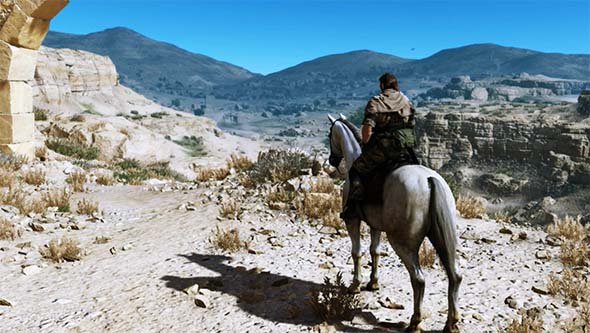
More and more big-budget games are going open world. is this a good thing?
This leads to problems in which the player can spend hours, weeks, or months doing tangential, or completely unrelated, tasks and pushing the game's story objectives down to the bottom of their priority list. For people who just like to play the game, this may not be much of a problem. They get a massive sandbox in which to do anything they want. That is actually one of the back-of-the-box selling point for most of these games.
But as one of those "games as art" kind of snobs, I also really like to have an engaging narrative that flows seamlessly with the gameplay. So if a game offers a narrative of any kind, you bet I'm going to judge the game based (at least in part) by how well that narrative works and how fully it is integrated into the core gameplay experience. And when a game tries to convince the player that they are destined to save the world from impending doom (as is often the case with big-budget, open world games), then I get really peeved when I find myself able to completely eschew that destiny in favor of picking flowers and peddling salvaged bandit armor for the next 100 hours.
A world in stasis
The source of most of the "limbo" comes down to the fact that these games' worlds (despite being big and detailed) often feel static and devoid of life. They don't change on their own. No one seems to have any sense of agency, and nothing ever happens unless the player is there to make it happen. Quest-givers sit around outside their house forever waiting for the player to come along and help them kill the wolves that are attacking their livestock, or find their missing heirloom, or deliver their special package to someone in the next town over, or whatever else they want done. The situation never resolves itself, the quest-giver never gets tired of waiting for you and hires another adventurer, those wolves never manage to eat all the remaining livestock, the heirloom never shows up in lost-and-found, and the statute of limitations on that package never expires. Emergencies can always wait [indefinitely] for the player to resolve them.
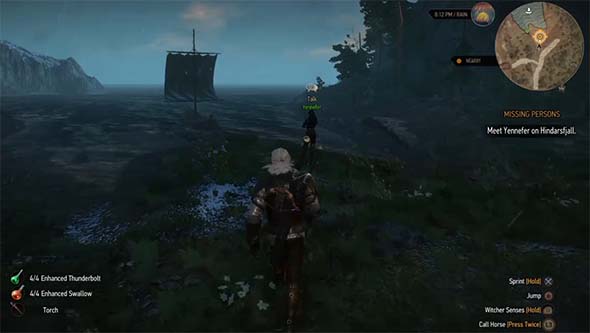
Quest-givers will wait forever for the player character to show up and solve their problems.
But worst of all is that the big, bad villain (if there is one) just doesn't feel very threatening or intimidating if he (or she, or it) isn't actually doing anything to actively antagonize the player or the world... [More]
ced5d1e2-3408-4ea8-8245-ca32f7affbe1|4|4.8
Tags:open world, limbo, option paralysis, narrative, ludonarrative, ludonarrative dissonance, consequences, punctuated equilibrium, quest, The Elder Scrolls, Oblivion, Skyrim, The Witcher 3, Grand Theft Auto, Final Fantasy, Mass Effect, The Legend of Zelda, Majora's Mask, Shadow of Mordor, Fallout, Sid Meier's Civilization, Cities: Skylines
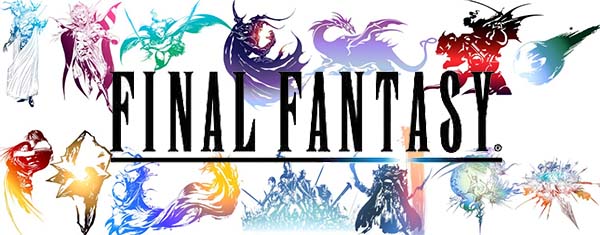
Despite being great games, the character development systems of many Final Fantasy games have really weird qualities that put them at odds with the games' narratives. One of the things that separates games from other media such as books or movies is that games are interactive experiences. The best games typically have gameplay that informs story and / or a story that informs the gameplay. This is especially true of RPGs, which are generally designed entirely around their stories and characters.
While the combat and character development systems of most Final Fantasy games do have a basis in the game's narrative, some of the Final Fantasy games have gameplay systems that actually pull the player out of the story and create strong disconnects between the gameplay and the narrative.
Yet, we still love these games. That is either a testament to the overall quality of the games, or to the general gullibility of gamers.
Perhaps the two most popular Final Fantasy games are the worst offenders in terms of having gameplay mechanics that aren't well integrated into the narrative.
Final Fantasy VII is widely regarded as best game of the series, and it frequently appears on lists of "the Best Games Ever". Its story, characters, and locations have become iconic. And its primary character-development mechanic, materia, is generally well-received by fans and critics. The materia itself is even a functional object in the game world and an integral part of the plot, instead of just an abstract game mechanic.
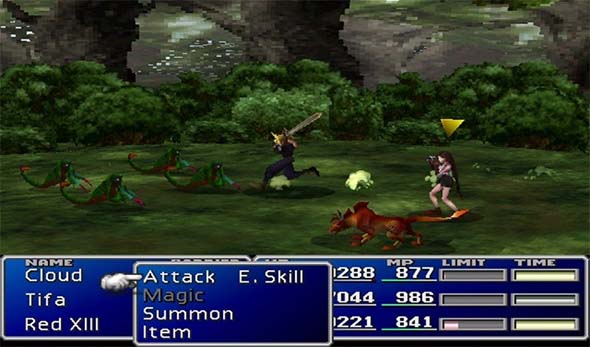
All skills and abilities (except Limit Breaks) are granted by equipping materia,
making all character functionally almost identical.
However, this materia system does have one significant drawback: It severely limits the role of the characters in the actual gameplay.
From a gameplay perspective, the characters of Final Fantasy VII are mostly blank slates. The only mechanics that are unique to characters is their weapon classes and unique limit breaks. The weapons are mostly cosmetic, since the combat mechanics don't differentiate them much. There are slight variations in the number and arrangement of materia slots between characters' weapons, but these are minor differences. Limit breaks are infrequently used and are of little consequence ... [More]
ea7aa59c-7493-4967-ac9b-2c6f6f385c7c|1|5.0
Tags:Final Fantasy, Final Fantasy VII, Final Fantasy VIII, Final Fantasy IX, Final Fantasy X, Final Fantasy X-2, Final Fantasy XII, Final Fantasy XIII, Final Fantasy XV, materia, guardian force, sphere grid, dress sphere, job, level up, RPG, story, Squaresoft, Square-Enix
|

| 12 | | | | | | | 60 | | 11 | | | | | | | 55 | | 10 | | | | | | | 50 | | 09 | | | | | | | 45 | | 08 | | | | | | | 40 | | 07 | | | | | | | 35 | | 06 | | | | | | | 30 | | 05 | | | | | | | 25 | | 04 | | | | | | | 20 | | 03 | | | | | | | 15 | | 02 | | | | | | | 10 | | 01 | | | | | | | 05 |
|